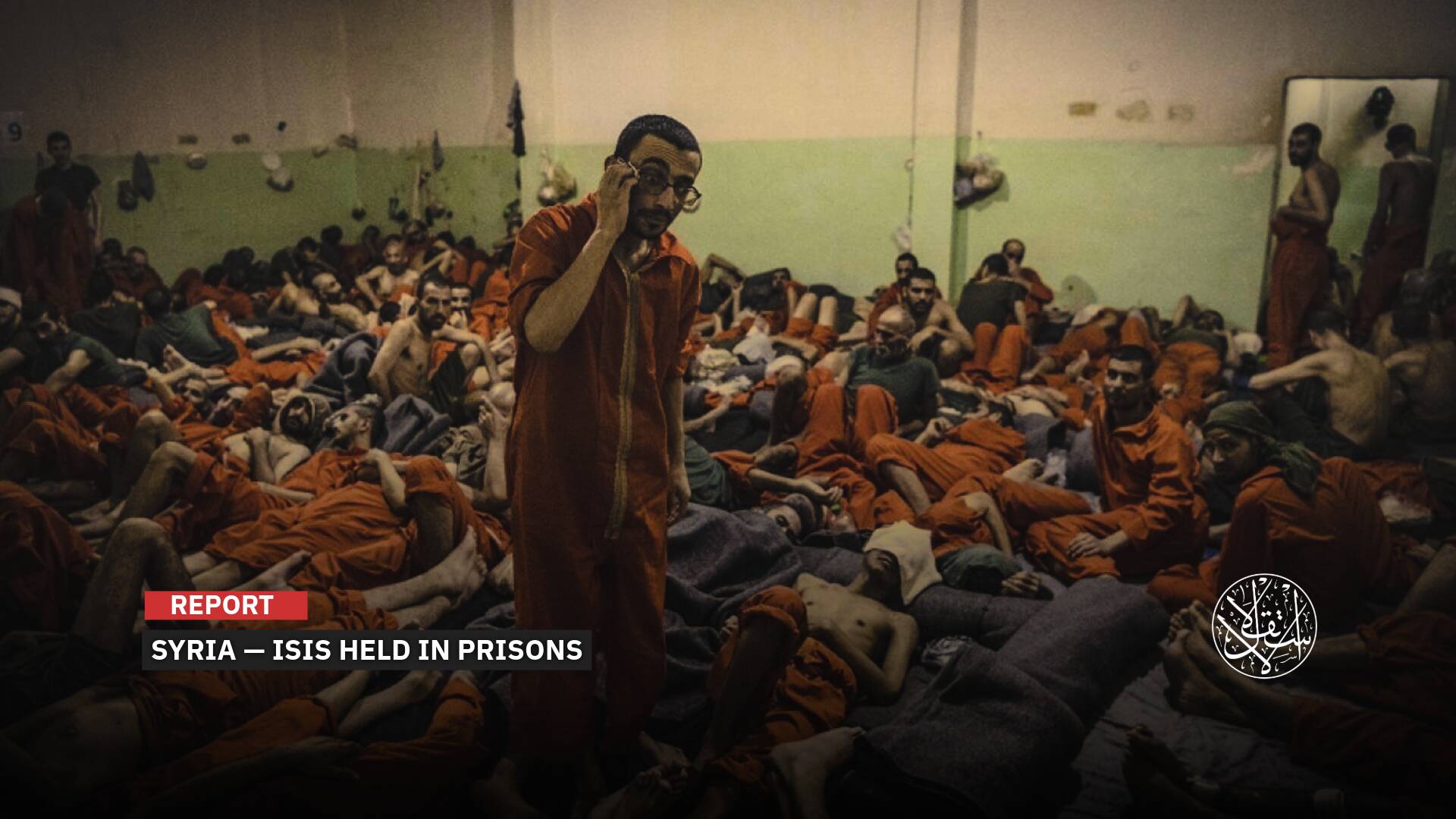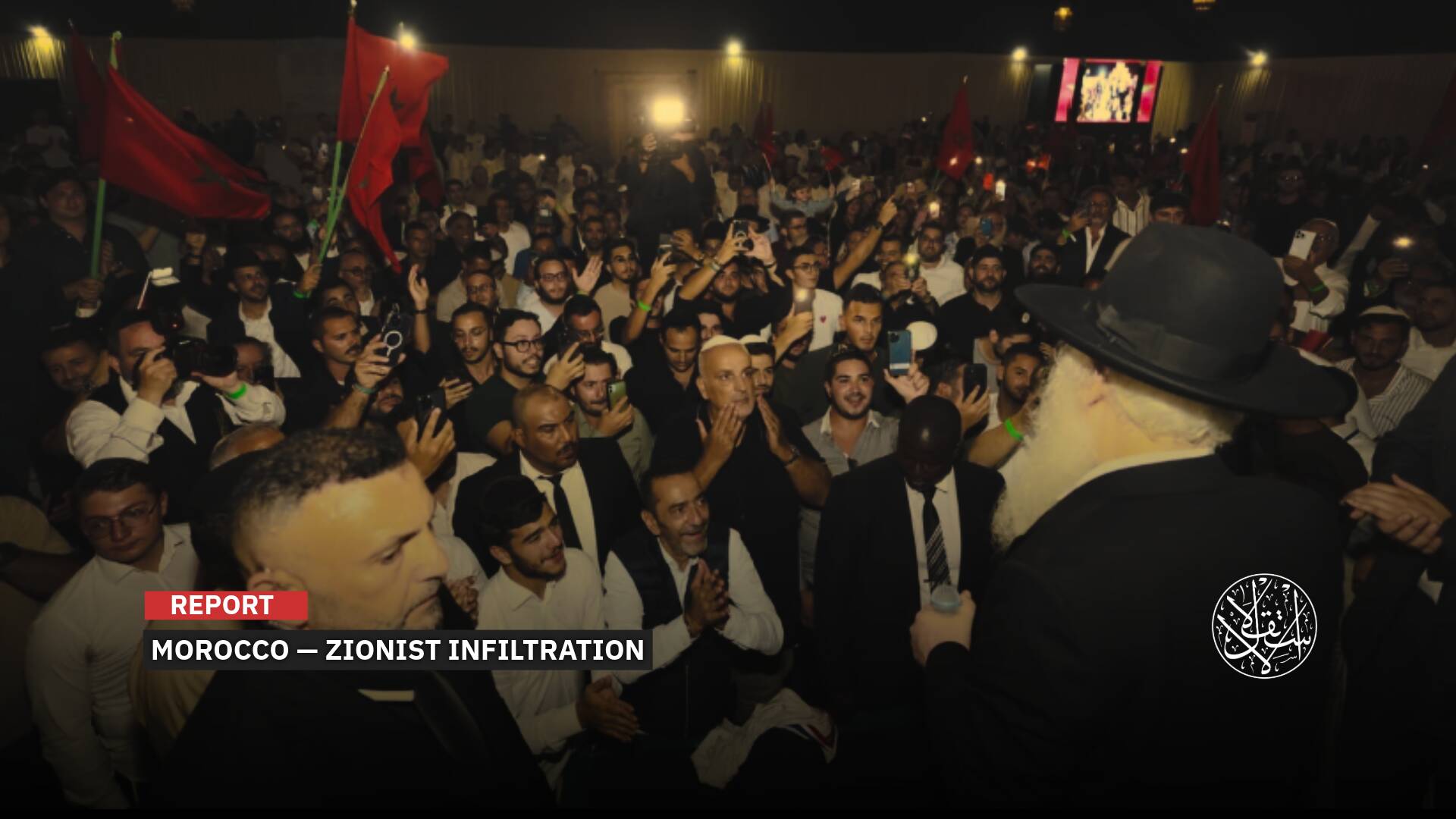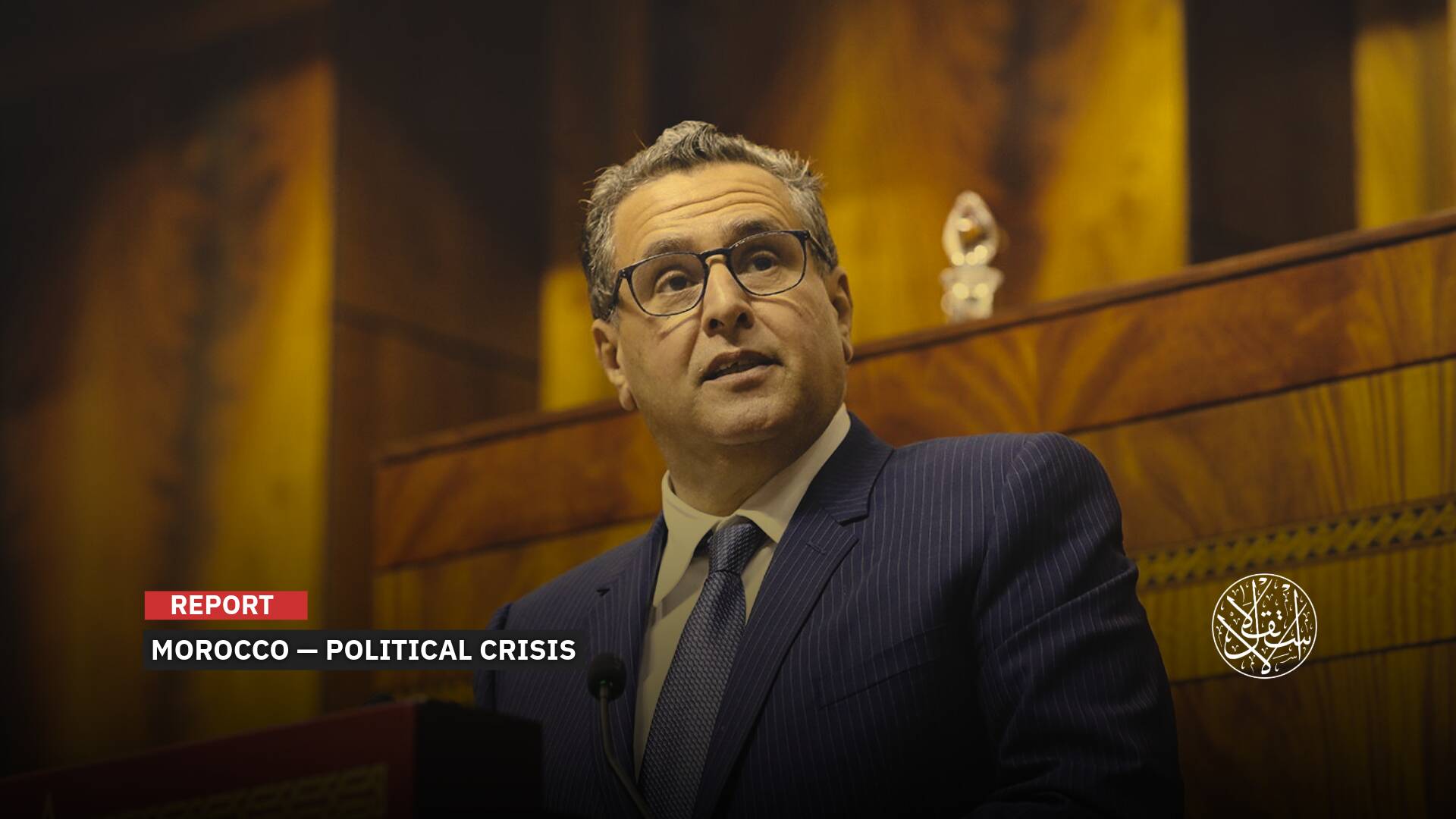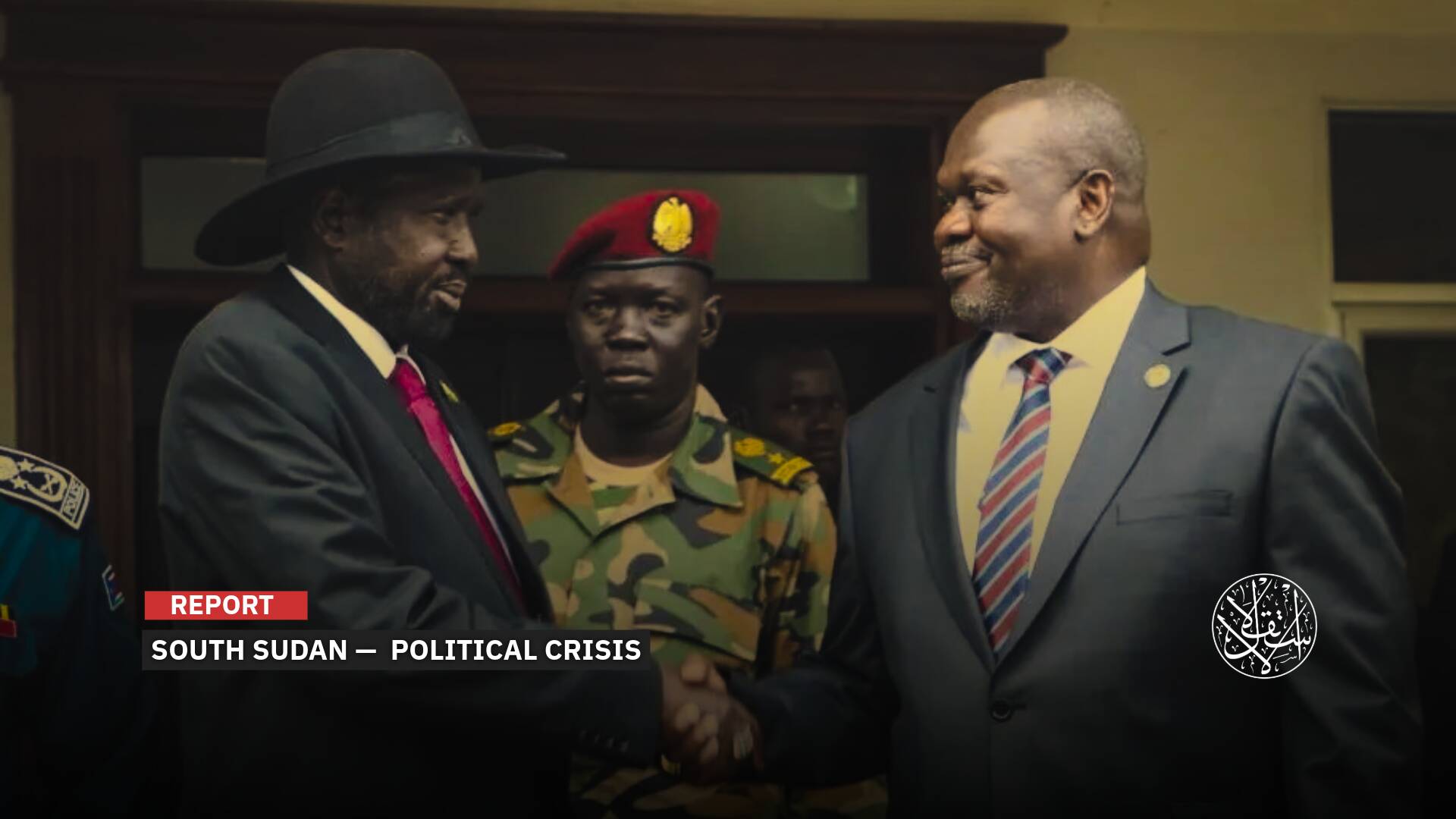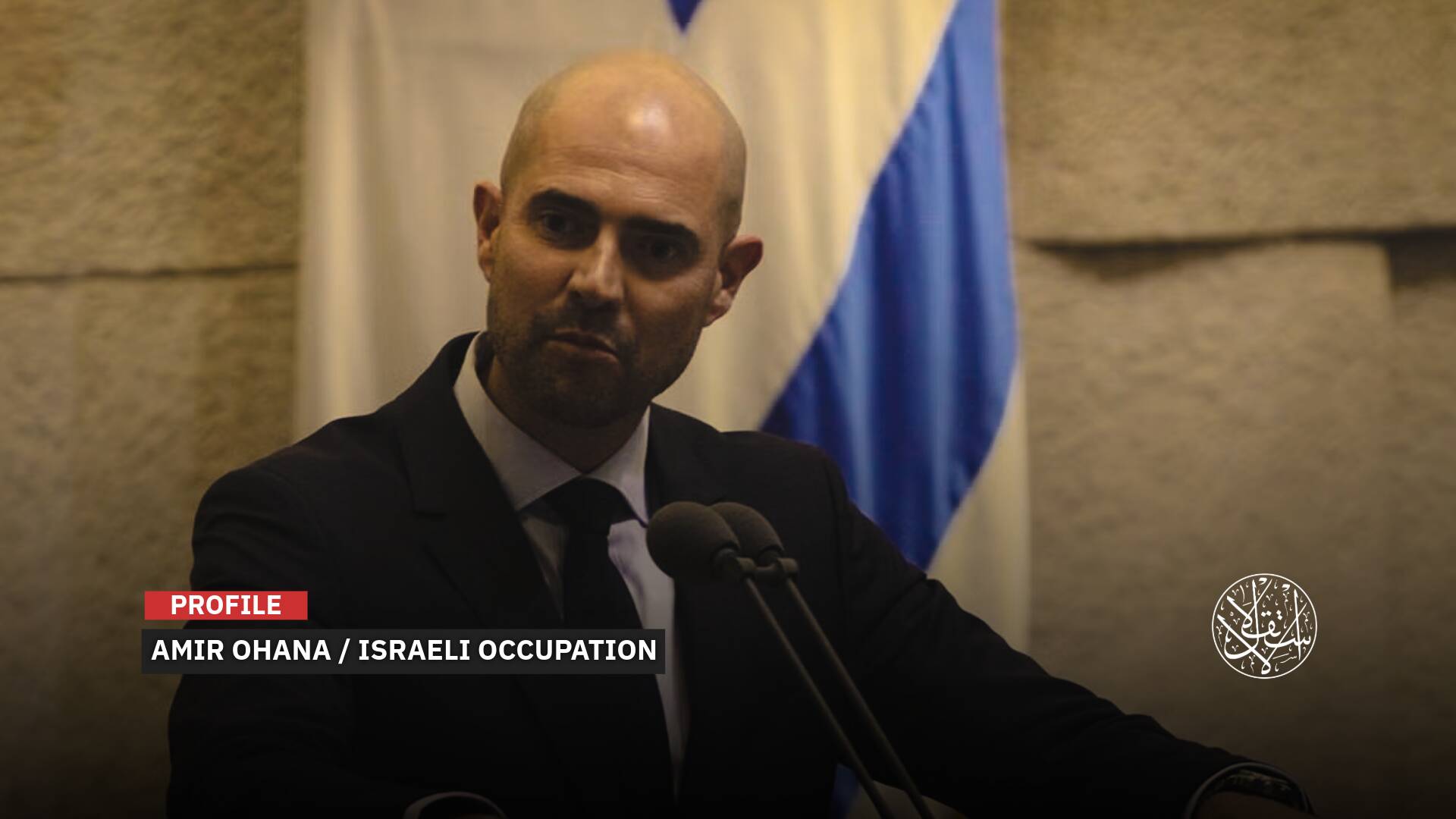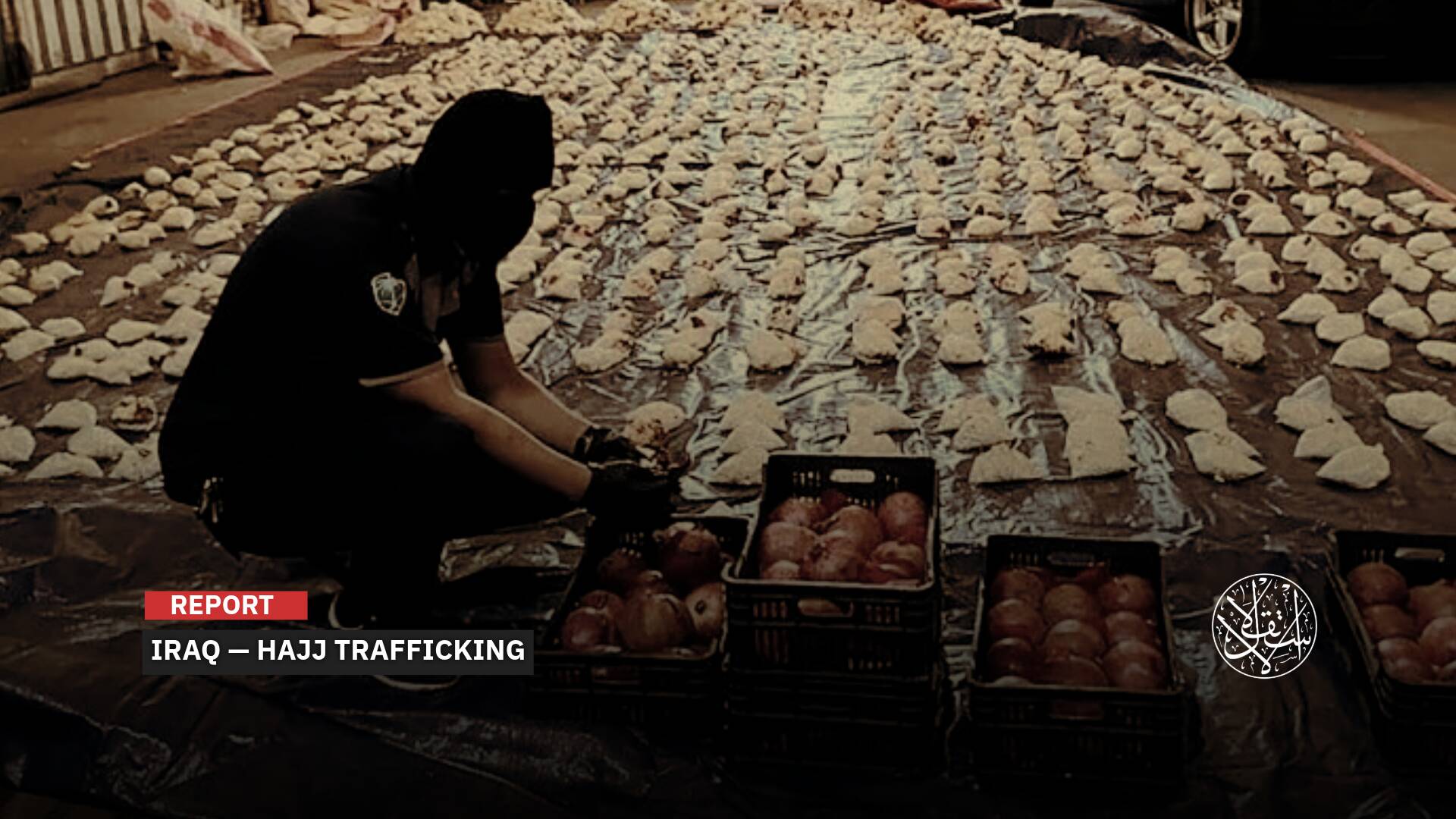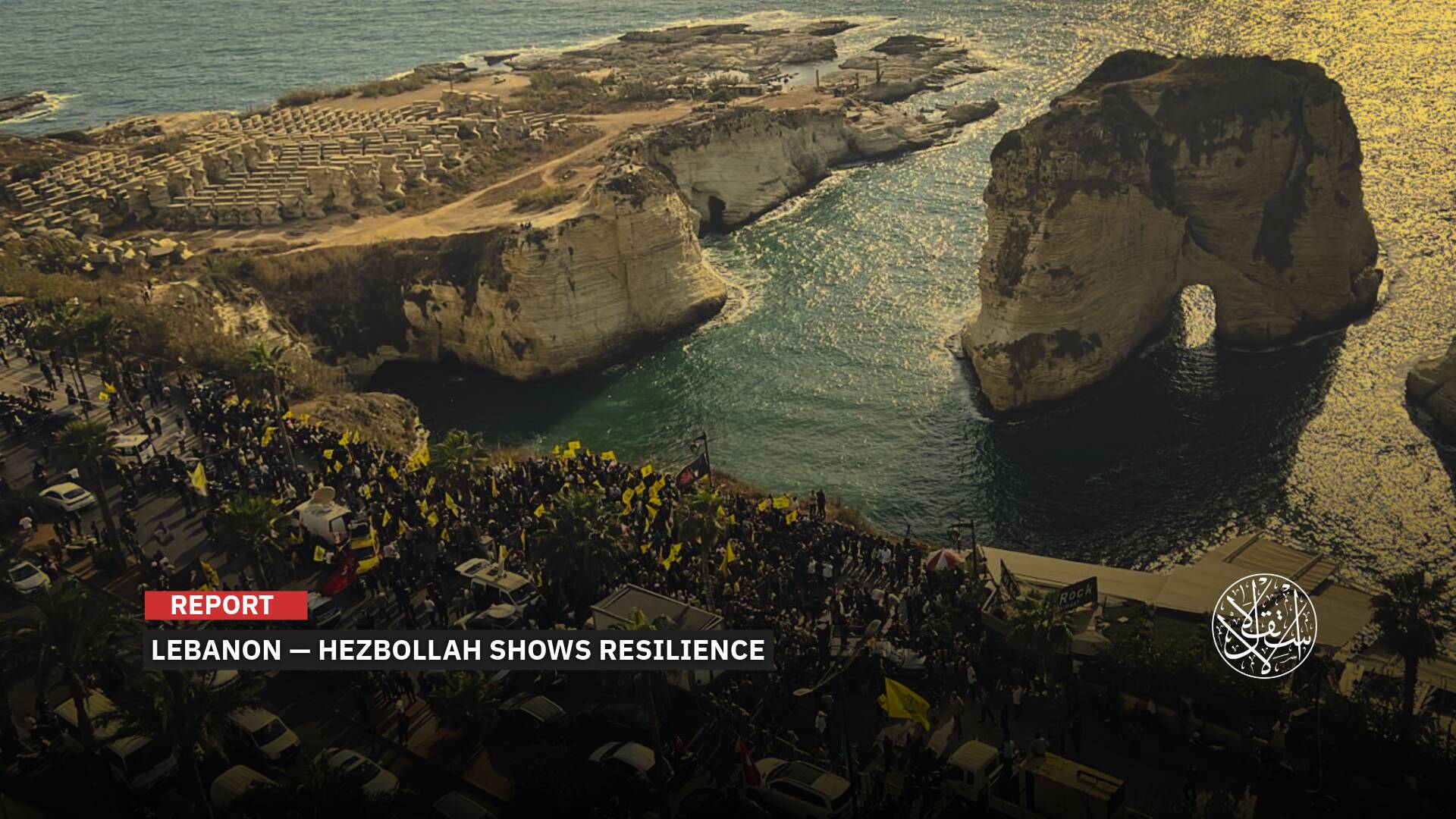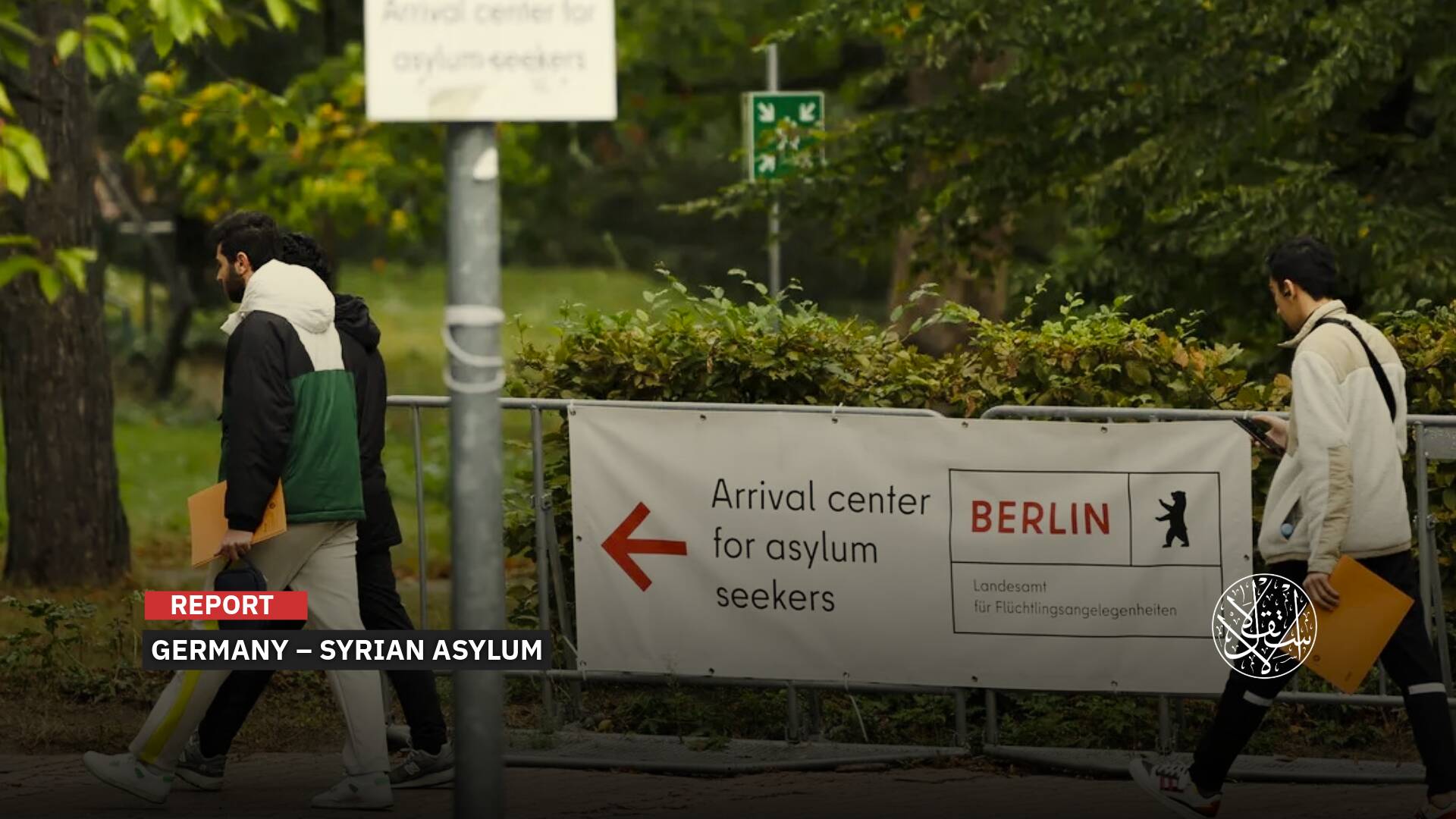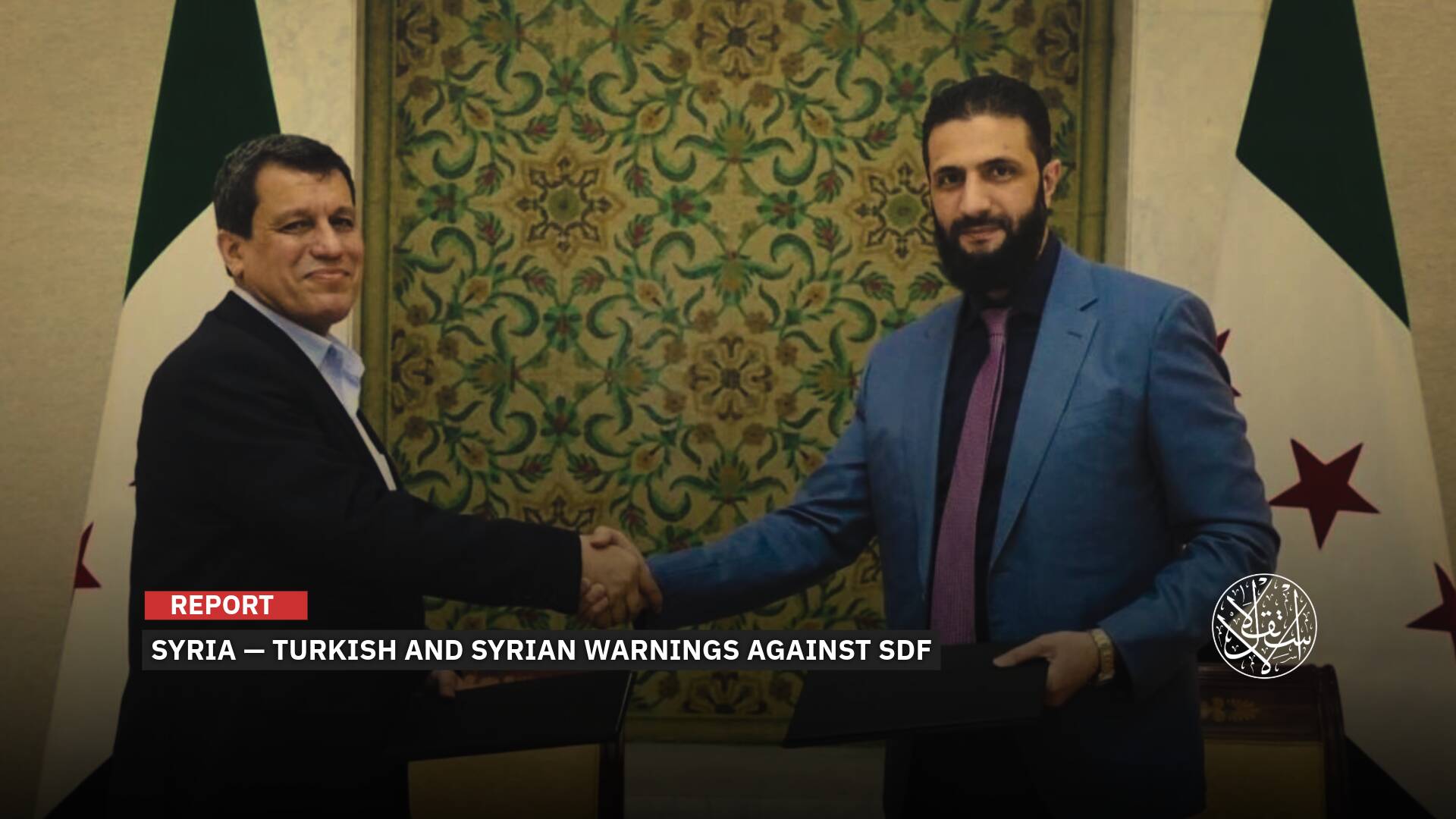Deaths and Injuries in Morocco Protests: Is Akhannouch’s Government on the Line?
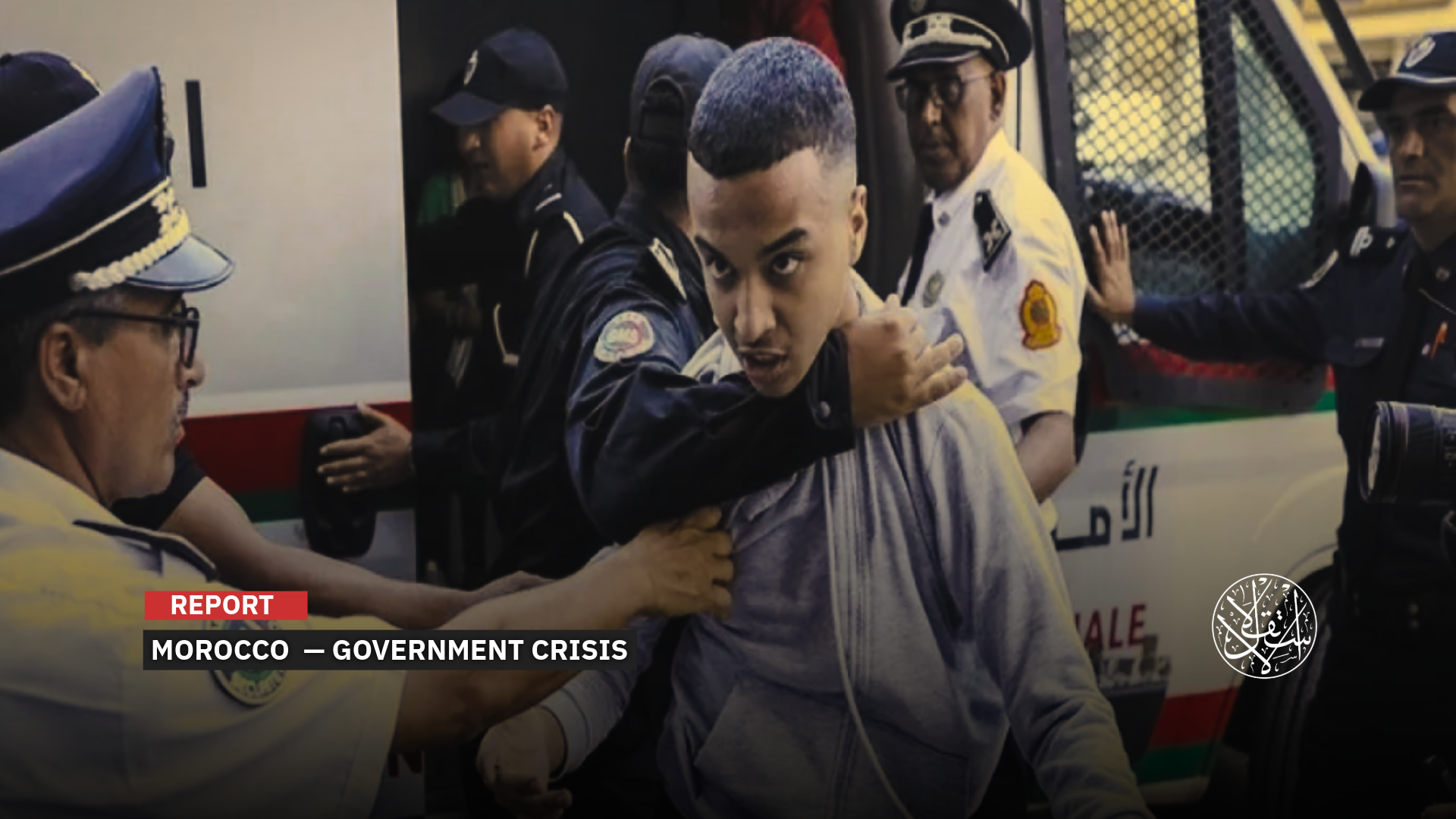
At minimum, responsibility calls for an immediate end to the ‘government of tragedies’ and the ‘parliament of falsehood’ before it’s too late.
Mounting clashes and tension on the streets of Morocco have prompted a number of political, rights-based and academic voices to call for the dismissal of Prime Minister Aziz Akhannouch’s government, in order to avert what they described as dangerous consequences for the country.
The calls followed an announcement by the interior ministry that two people had been killed by gendarmerie gunfire and others injured, during an attempt by protesters to seize a service weapon from members of the royal gendarmerie.
According to the Moroccan state news agency MAP, on October 2, 2025, local authorities in the Inzegane, Ait Melloul prefecture reported that gendarmerie forces in Lqliaa had been forced on the evening of October 1, 2025, to use their service firearms in what they described as self-defense, after protesters attempted to storm a gendarmerie post.
“The individuals in question, within groups of people, engaged in acts of violence and rioting by pelting the gendarmerie post with stones and attempting to break in, before security forces initially managed to repel them with tear gas, in the framework of legitimate self-defense.”
“However, after reinforcing their numbers with large groups of troublemakers, the attackers renewed their assault on the gendarmerie post, armed with bladed weapons, ultimately managing to break in and overrun it. They seized a vehicle and four motorbikes belonging to the gendarmerie, and set fire to the vehicle as well as part of the building.”
The communique noted that “a judicial investigation has been opened under the supervision of the competent prosecutor’s office, to establish all the circumstances and details of these events, identify everyone involved in these criminal acts, and draw the necessary legal consequences.”
Several Moroccan cities have witnessed demonstrations led by a movement calling itself “Generation Z 212,” demanding reforms in education and healthcare, action against corruption, and a guarantee of decent living conditions for citizens.
Protesters have also chanted slogans calling for the resignation of Prime Minister Akhannouch, including during a march in Casablanca on the evening of October 1, 2025.
Ill-Fated Government
In the wake of deaths during the protests, political activist and media figure Hassan Hammourou declared that “lives are a red line,” stressing that serious political parties, particularly opposition groups and credible national figures, should take the initiative of submitting a memorandum to the king calling for the dismissal of what he described as this “ill-fated government,” and the launch of a new wave of political reforms.
In a Facebook post dated October 2, 2025, Hammouro also warned that “democracy comes first, and only afterward development, even if it were integrated.”
Omar el Mourabet, a member of the Council of the Moroccan Community Abroad, affirmed that “the interests of the country come before those of individuals and parties, especially when they shirk their responsibilities and fuel anger, as did housing minister Fatima el Mansouri when she said the government was not responsible.”
In a Facebook post on October 2, 2025, el Mourabet added, “What does the minister mean by this? She is tossing a ball of fire upward, and this is extremely dangerous for the security of the country,” stressing that “the government must go.”
Former state minister in charge of human rights, Mustapha Ramid, reacted to the developments by saying that the issue was no longer only about legitimate demands, nor about the exercise of the right to protest, which is constitutionally guaranteed, but had taken on an exceptional gravity concerning the violation of the right to life and the destruction of public and private property.
In a Facebook post on October 2, 2025, Ramid wrote that “criminal gangs have infiltrated the protest space, mingling with those of good intentions and legitimate aspirations, corrupting the protest itself and tainting it with the mark of violence and crime, assaulting public and private property […] The result is damage to property and, unfortunately, even loss of life, as well as hundreds of wounded and injured.”
The former minister argued that the only remaining solution was for those driving this youth dynamic of Generation Z to show the courage and capacity to rein in what he called “the generation of crime,” even if that meant halting the protests.
“Otherwise, we are heading into the unknown […] which can only mean further losses in lives and property, potentially amounting to national losses that are irreparable and beyond recovery,” he continued.
Journalist and human rights activist Imad Stitou argued that the violence was not being carried out by young protesters with legitimate demands, but by infiltrators from outside the demonstrations who exploit the situation for looting, arson and creating chaos.
In a Facebook post dated October 2, 2025, Stitou wrote that “without warning, without anyone knowing how, and after protests in Tangier, Marrakesh and elsewhere end peacefully and their organizers disperse, masked figures of unknown identity appear, followed by teenagers and minors, to wage street battles with the security forces in other neighborhoods, once again targeting banks and both private and public property.”
“In this obscure and chaotic scene, which pleases no one, it will appear as though the country is in need of an urgent state of emergency. Calls will focus on restoring security, on delaying legitimate demands, and on stopping the protests, even if those who called for them are not behind these events.”
“Perhaps there are unknown actors involved in the scene, but they retreat to the background, leaving us with a simple, reduced picture, which is all we have for now, imposing on us a binary: chaos versus stability, which must be restored immediately, and protests with just demands, which must nevertheless be postponed,” Stitou continued.
Akhannouch Must Resign
University professor and leading figure in the opposition Islamist Justice and Development Party, Abdelaziz Aftati, has joined the demands of protesters and political actors calling for the fall of the Akhannouch government, in order to bring an end to Morocco’s current crisis.
Speaking to Al Estiklal, Aftati stressed that balanced responsibility required, at the very least, and before it was too late, an immediate end to what he called the “government of tragedies” and a “parliament of falsehood,” along with broad and fair accountability for the corrupt.
Aftati also called for the release of those detained in connection with the protests, the halting of prosecutions, and a collective move, with strong and wide participation from young people, towards establishing the authority of the people.
“An authority whose source is the people, with a constitution that safeguards it, and free, fair, transparent elections open to all without exception and without the exclusion of any political current,” he continued.
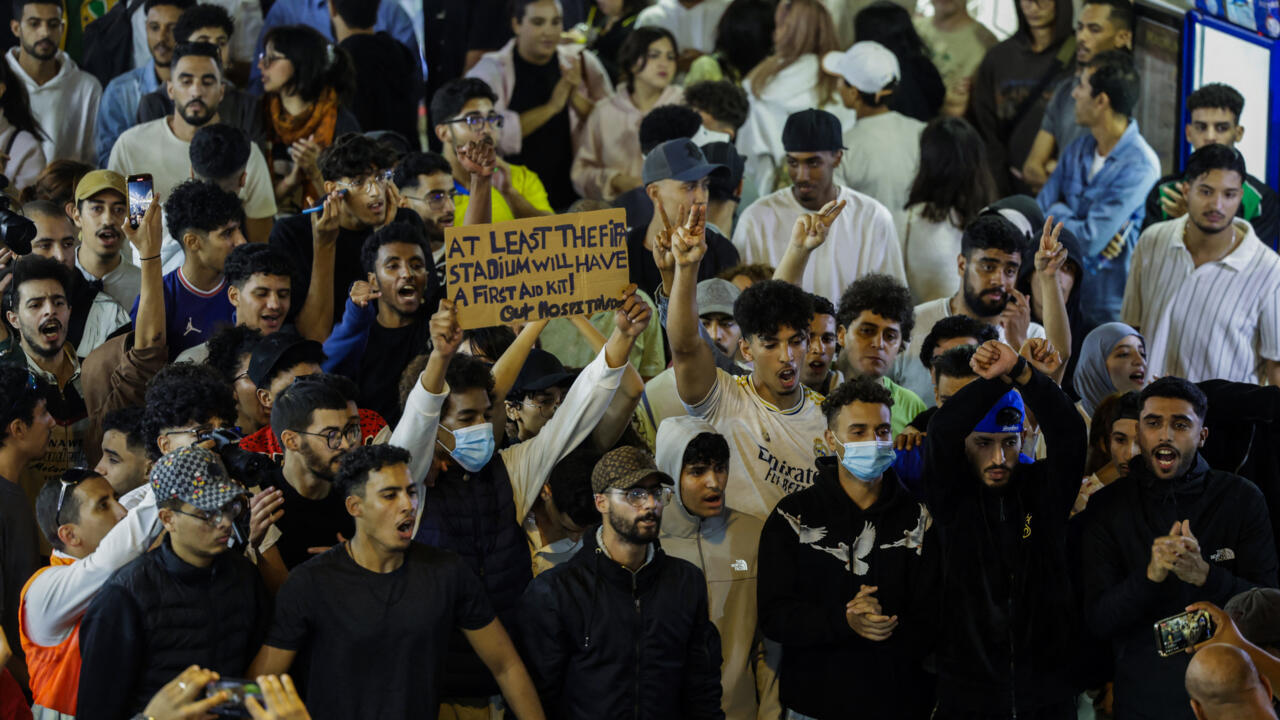
Mohamed Hilali, head of the Moroccan Center for Contemporary Studies and Research, said that anyone who cares about the country should recognize that the situation requires a major symbolic step to pave the way for a forward-looking reform initiative, and that this must happen before it is too late.
Speaking to Al Estiklal, Hilali added that the primary step should be the dismissal of the predatory Prime Minister Aziz Akhannouch and his failed and corrupt government.
He described the move as symbolic, signaling that the message of the protests has been heard, stressing that “removing the prime minister could have reassuring effects if it comes at the right time, and it is better than delay, before he finds himself facing a scenario of flight that no one wishes for our country.”
Hilali emphasized that the presence of the September 8, 2021, parliament has become more costly than dissolving it as an important symbolic step, warning that any delay would only multiply this cost and reduce the chances of mitigating the unrest in the streets.
He also said that holding accountable the “whales” who devoured wealth, siphoned off exorbitant profits, secured major deals and acquired prime real estate would be an important step.
Hilali added that, alongside efforts to quell the flames on the streets, such accountability would be the clearest expression that legitimate demands have reached the state and its heart.
“The royal institution is capable of launching an initiative with the elements needed to create the required shake-up, a positive shock capable of calming the streets and restoring the hearts and minds wounded by the return of control, rampant predation, and the absence of justice,” Hilali concluded.
In his academic reading of the situation, political science and constitutional law professor Abdelhafid Younsi said that the political response to the youth protests, while an essential entry point, remains insufficient given the complexity of the country’s political, social and economic challenges.
Speaking to the Justice and Development website on October 1, 2025, Younsi said, “The problem today lies in the political approach to managing public affairs,” stressing that the solution lies in further democratization, strengthening the rule of law, linking responsibility with accountability, and the freedom to choose who manages the affairs of the country and its people.
He criticized the current government’s performance, arguing that it “has fallen morally through repeated conflicts of interest, violations of the law, and the bypassing of procedures to achieve the interests of a select few, without regard for the public good.”
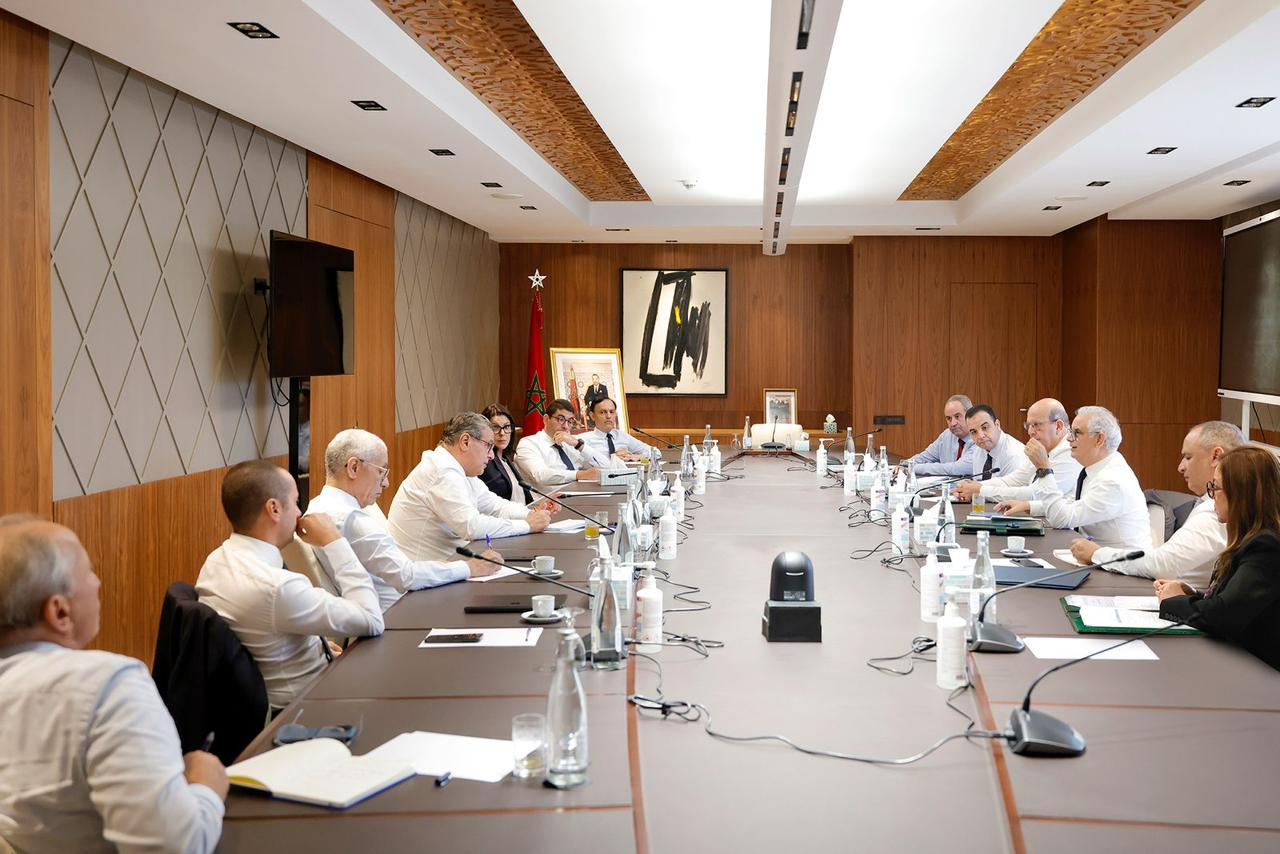
The university professor also emphasized that “this government has fallen politically as well, through its failure to resolve the social and economic crises Morocco is experiencing, including soaring unemployment, declining purchasing power, and the weakening competitiveness of the national economy, as well as falling socially through the current demonstrations.”
Younsi argued that the response must be multifaceted and requires political courage to break with the logic of halting democratization, which began with the February 20, 2011, youth protests, was reflected in the government of Abdelilah Benkirane, but was then blocked in 2016 despite his electoral victory, culminating in the disasters of the September 8, 2021, elections.
He concluded by calling for the dismissal of this government and its prime minister, Aziz Akhannouch, and the establishment of a caretaker government composed of national political experts, ahead of the next elections, which should be brought forward from their scheduled date in the first quarter of 2026.
Peaceful Protests
In response to the surge of violence and its consequences, the “Generation Z 212” movement announced on Thursday, October 2, 2025, that peaceful protest gatherings would be held that day, as part of a civil and responsible expression of its legitimate demands.
In a Facebook post addressed to the public and authorities, the movement stressed that its demonstrations would be entirely peaceful, declaring its “rejection of any form of violence, vandalism or rioting.”
To ensure order and prevent some individuals, described as “hooligans,” from exploiting the protests for theft or the destruction of public and private property, it was decided that demonstrations would take place between 5 p.m. and 8 p.m.
The movement also announced that “the selected locations are civilized and safe, and cannot be accessed or exploited by outside elements seeking chaos.”
It added that the organization of the protests followed a majority vote within the movement, underscoring the participatory and democratic nature of its decisions, and called on all participants to maintain discipline, act responsibly, and uphold the peaceful and civilized character that defines the movement.


